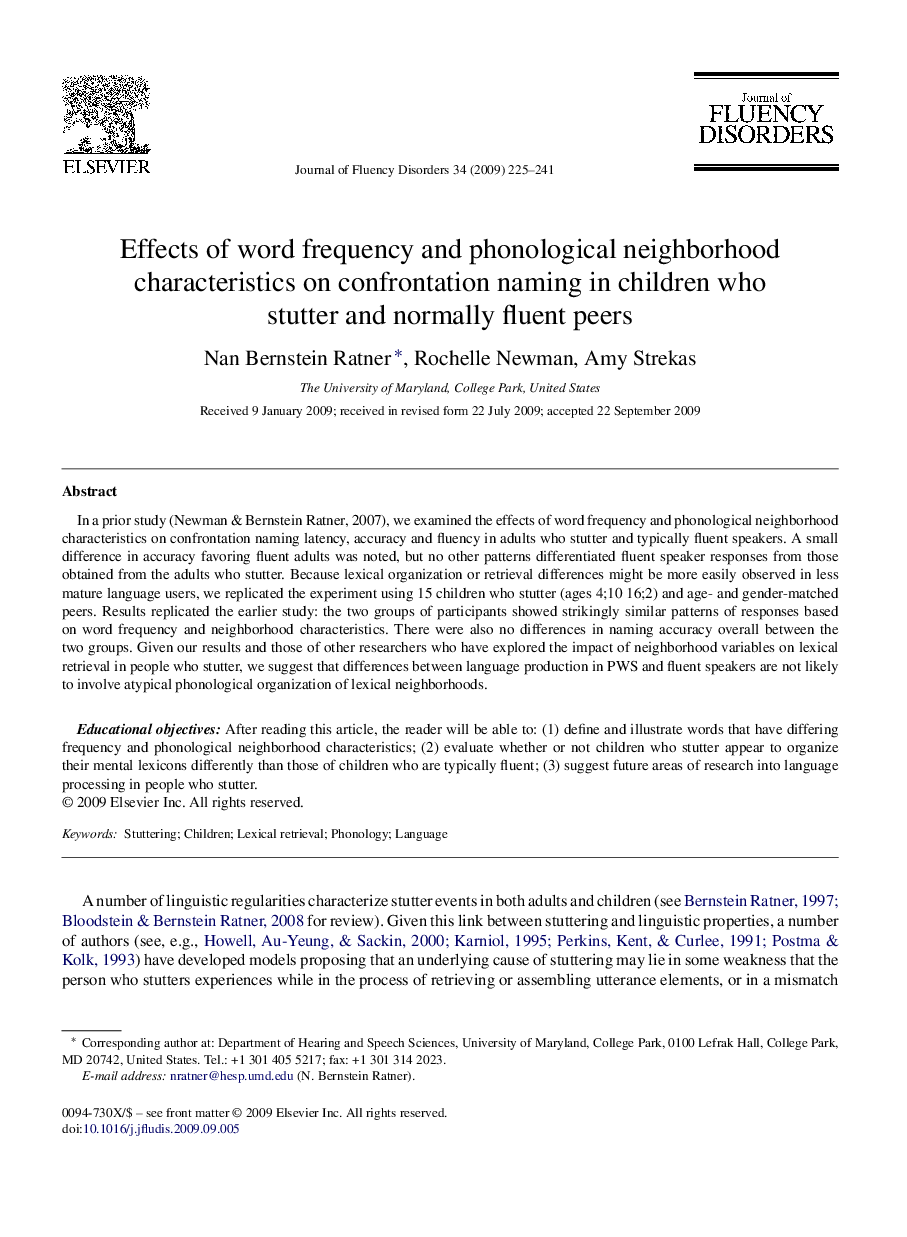| Article ID | Journal | Published Year | Pages | File Type |
|---|---|---|---|---|
| 911478 | Journal of Fluency Disorders | 2009 | 17 Pages |
In a prior study (Newman & Bernstein Ratner, 2007), we examined the effects of word frequency and phonological neighborhood characteristics on confrontation naming latency, accuracy and fluency in adults who stutter and typically fluent speakers. A small difference in accuracy favoring fluent adults was noted, but no other patterns differentiated fluent speaker responses from those obtained from the adults who stutter. Because lexical organization or retrieval differences might be more easily observed in less mature language users, we replicated the experiment using 15 children who stutter (ages 4;10 16;2) and age- and gender-matched peers. Results replicated the earlier study: the two groups of participants showed strikingly similar patterns of responses based on word frequency and neighborhood characteristics. There were also no differences in naming accuracy overall between the two groups. Given our results and those of other researchers who have explored the impact of neighborhood variables on lexical retrieval in people who stutter, we suggest that differences between language production in PWS and fluent speakers are not likely to involve atypical phonological organization of lexical neighborhoods.Educational objectives: After reading this article, the reader will be able to: (1) define and illustrate words that have differing frequency and phonological neighborhood characteristics; (2) evaluate whether or not children who stutter appear to organize their mental lexicons differently than those of children who are typically fluent; (3) suggest future areas of research into language processing in people who stutter.
